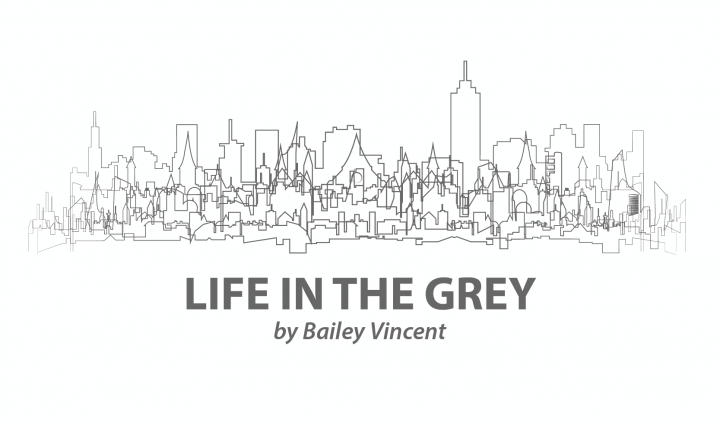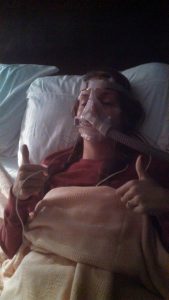Having a Rare Disease Is a Lot Harder Than You Think
Written by |

Because we just honored Rare Disease Day on Feb. 28, I’d like to share what it’s like living with one.
Having a rare disease means strangers telling you what your rare disease means, even though they’ve never lived or worked with it themselves. It means existing with stereotypes like, “Only kids are diagnosed with CF.” (Yes, we are born with it, but some are diagnosed as late as their 70s). Or, “You can’t live past 17.” (Again, some patients are in their 70s.) And on and on.
Having a rare disease means enduring the common catchphrase, “But you don’t look like you have [insert rare disease],” even though you have met other humans of every shape, size, and color with said disease.
Having a rare disease is being prevented from having any correlating or connecting symptoms, because we like concepts of illness to be concise and narrow. Am I the only person with cystic fibrosis who is late deafened? No. In fact, my boss in the columns division here at Cystic Fibrosis News Today is Deaf. (Yes, that means he has the power to cut my word count to 400 if I don’t impart enough wisdom here. So, read up and remember: CF can come with hearing loss. Vision loss. Hair loss. It is not just about loss of lung function.)
Having a rare disease means that everything you do to better yourself comes with criticism. I still recall feeling the need to defend myself when I was dancing with extremely low lung function, on and off supplemental oxygen, as if all I should do is lie around and rot. That is not what CF teams recommend or request, nor an automatic requirement for true unwellness. Digital friends of mine were on the transplant list and climbing rock walls or meeting with personal trainers at home because it is a huge part of qualifying and preparing for organ transplant. Decline in progressive illness should not be a passive process.
Having a rare disease means wishing that the people you love who don’t know enough about your disease would follow other patients online to learn more. To see, “Oh, that person is climbing rock walls and meeting with personal trainers,” and other examples of dreams versus decline.
Having a rare disease is being slightly scared of your own community, because all small communities have the propensity to be mean. Feeling misunderstood, subjugated, and ignored brings out the worst in any crowd, and bullies always float to the top (due to that hot air and such). We patients compare ourselves to one another, feel jealous of another’s successes, or get catty behind closed doors, because even if we want the world to understand that we aren’t alone, we also want to be unique at the exact same time.
Having a rare disease can bring out the worst in others. We choose ignorance over education and write cruel things online, because the concept of consequence feels further away somehow. It’s as if, because our life expectancy was in the teens just a few years ago, we can get away with more without actually becoming more.
Having a rare disease can bring out the best in friendships by creating lifelong bonds (normally 6 feet apart) that connect in ways deeper than peers do, because we know what a particular palette of pain feels like.
Having a rare disease can become your entire personality, a looming threat in which you meet someone else who shares the same trait, and then quickly realize that it’s all you can talk about. Goals and passions are fewer and further apart, and stolen in between. Or maybe you have to hustle however possible, writing a column for a website focused on your disease because your hypocrisy is loud and proud at this point in time. (See also: My Entire Personality.)
Having a rare disease means watching a life expectancy that slowly shifts with time, while trying not to wonder when yours will run out: 5 years old in the 1950s; 15 by the ’60s; and 30 by 1970 and beyond. Now, with new medications and better IV antibiotics, the current number hovers near 40, which says a lot considering it’s 10 years more than it was 10 years ago.
Having a rare disease means taking a shot of alcohol with your best friend every time another friend dies, because it was happening so often, and then realizing that in the last year, you haven’t been drunk once.
Having a rare disease means constantly educating others that you’re “not just one thing” while being worried that you actually are.
Having a rare disease means being scared and strong, and Science, with a capital “S.” It means existing as a living, breathing science experiment that no one fully understands until you’re long gone.
Having a rare disease means hoping you won’t be gone for long, with no guarantee of what’s to come.
***
Note: Cystic Fibrosis News Today is strictly a news and information website about the disease. It does not provide medical advice, diagnosis, or treatment. This content is not intended to be a substitute for professional medical advice, diagnosis, or treatment. Always seek the advice of your physician or other qualified health provider with any questions you may have regarding a medical condition. Never disregard professional medical advice or delay in seeking it because of something you have read on this website. The opinions expressed in this column are not those of Cystic Fibrosis News Today, or its parent company, Bionews, and are intended to spark discussion about issues pertaining to cystic fibrosis.









Staci Barkouskie
How do I get your book? I'm so excited to read it. I follow you and it's like you are living my life. Please email me how to order the book. I am 45 and I have a variant of cf. What variant the doctors aren't sure even now. This article really hit home for me. Thank you for your column. It's nice to know someone understands.
💙 Staci
Kaye Huebel
Yes everyone told me if my grandson got Covid he would die....he’s 16 months on kalydeco and only had a minor cold...was tested at CG children’s to make sure he had antibodies. His doctor said needed to cut calories...getting too heavy for his age...dr even said “ don’t forget he has CF” we are living in a new age...hopefully everyone will get a medication that works for them, until then yes, don’t let anyone tell you who you are!
R Shapland
My son had C F died at 5 My grandson 29 going strong with new drug